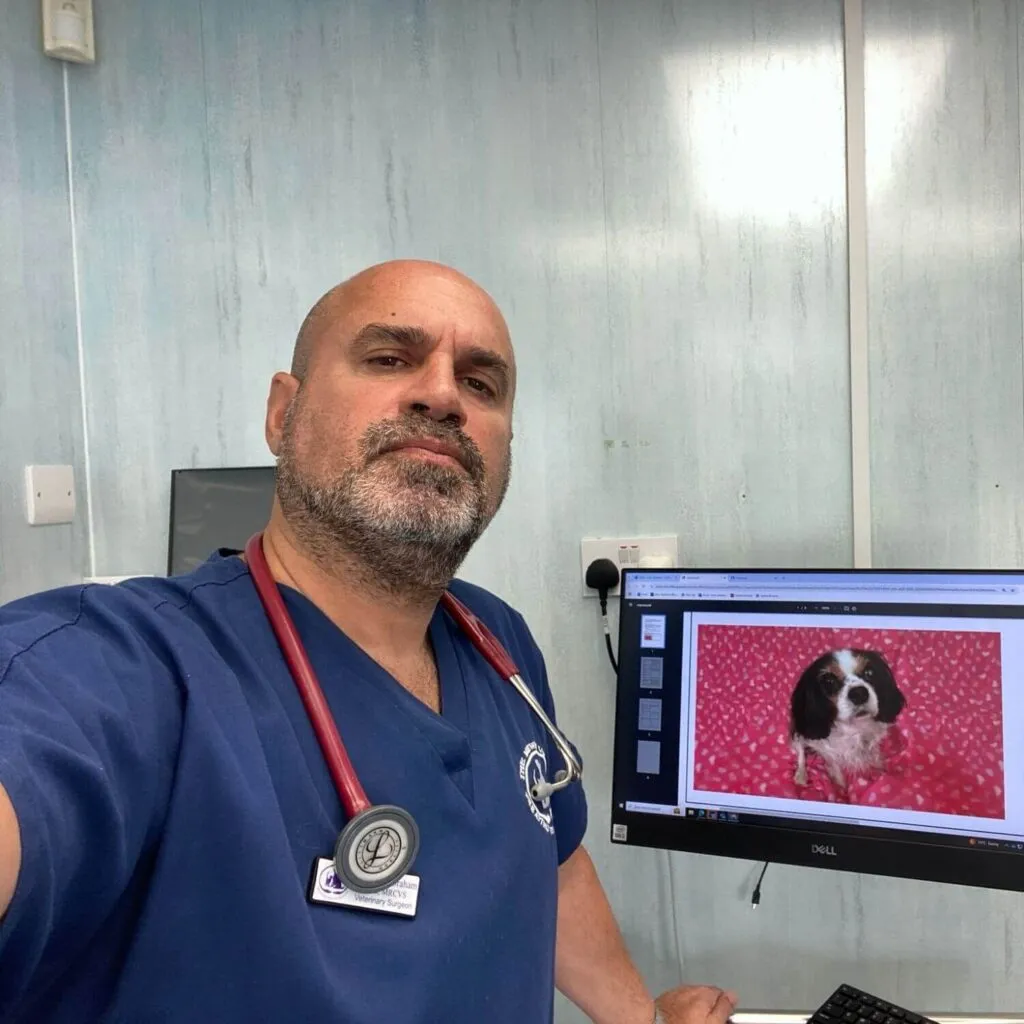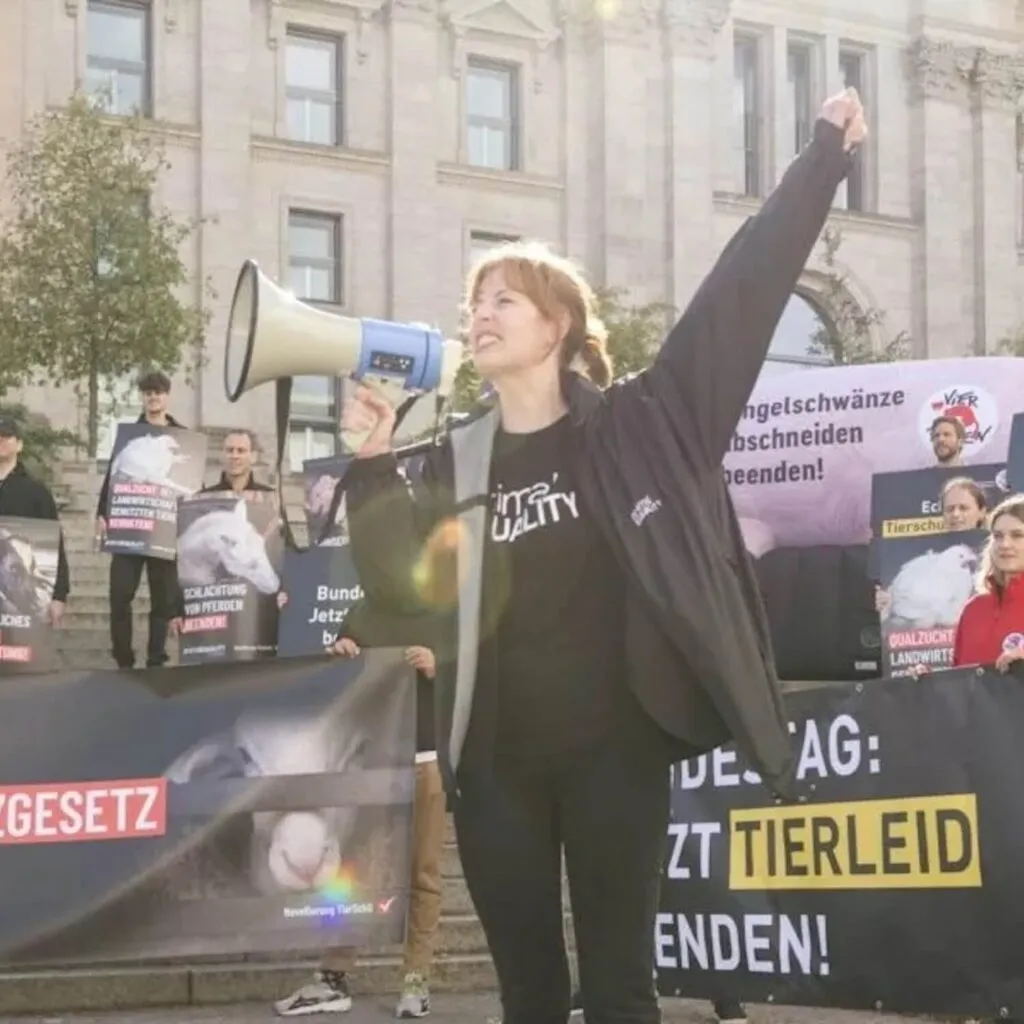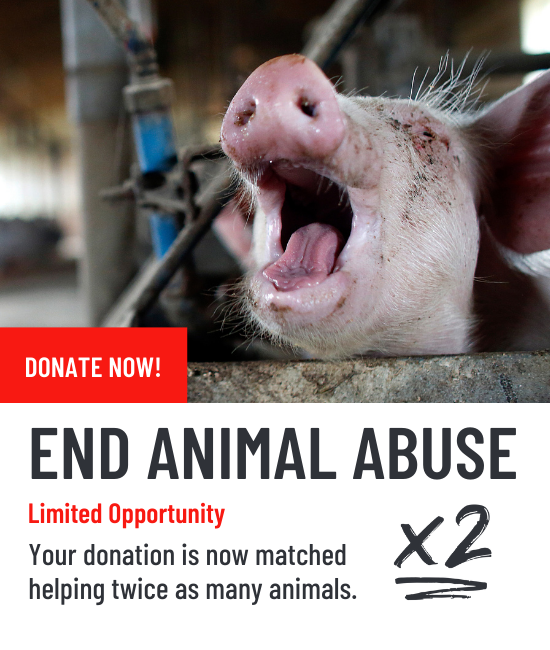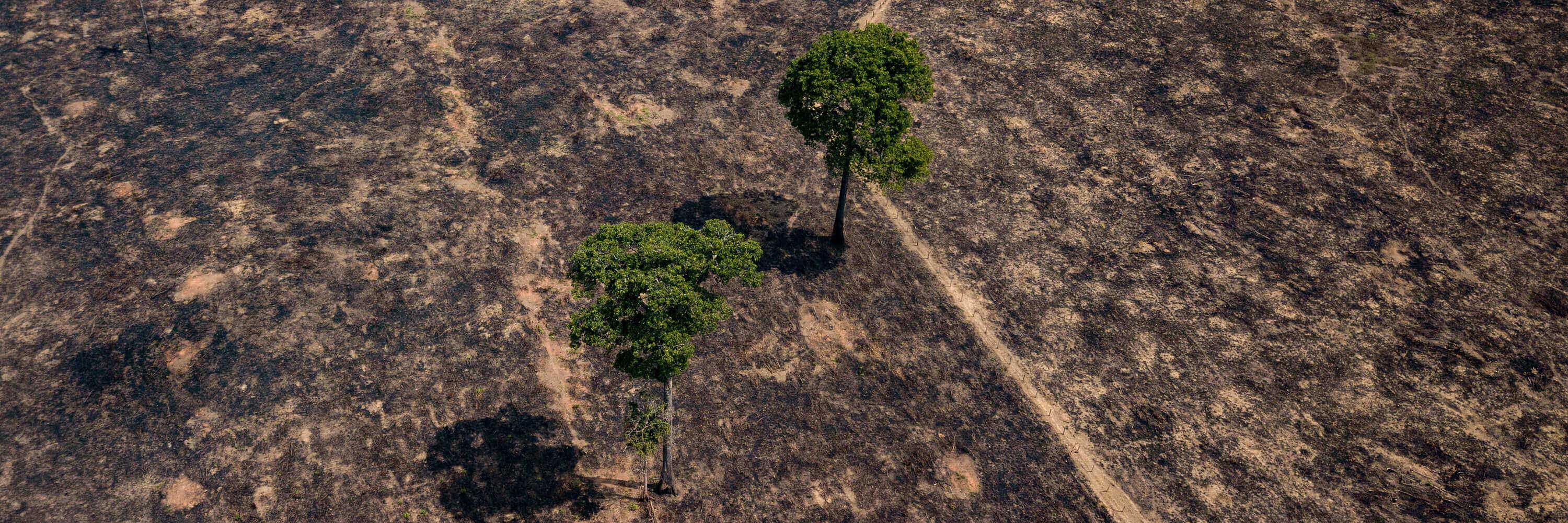
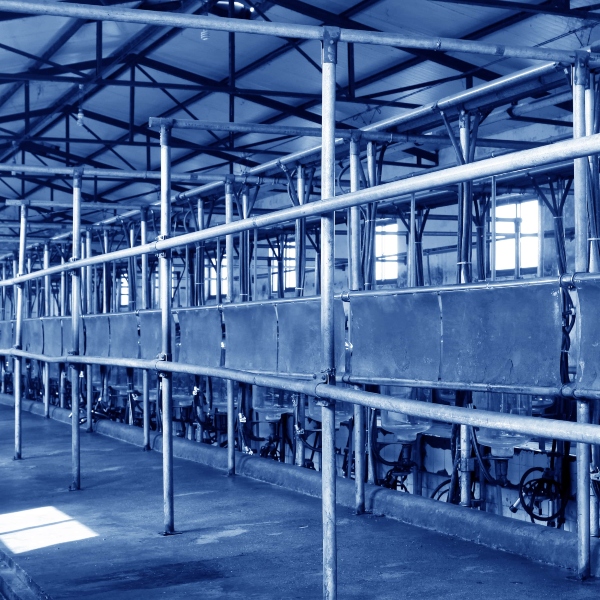
5 Secrets of Animal Agriculture
As well as causing unimaginable and unacceptable suffering to animals, the animal agriculture industry has many other dark secrets which it keeps hidden from the public.
In the UK, the majority of animals come from factory farms.
This means that the vast majority of meat, eggs and dairy products in the UK come from animals who have been kept in extremely unnatural conditions. Confined in filthy, dark, barren sheds, they are hidden away – out of sight and out of mind.
But this is just the tip of the iceberg.
The impact of intensive farming in the UK is felt all around the world.
1. Space
A key word in intensive farming is ‘maximise’. The animal agriculture industry aims to maximise ‘production’ of farmed animals in order to maximise profit.
In order to reduce space and keep costs to a minimum, over 90% of animals farmed in the UK are crammed by the thousands into overcrowded sheds, with others confined in tiny cages where they can barely turn around.
But while the animal agriculture industry tries to save space in some of its operations, it has no problem in stealing it elsewhere – taking over vast amounts of land in other countries to raise cows for meat and to farm crops like soy to be used as feed for the animals trapped on factory farms.
For example, today, animal agriculture is responsible for more than 80% of the deforestation in Brazil. This poses a major threat to our planet.
2. The Hidden Supply Chain
Feeding animals to be raised for human consumption requires a lot of resources. For example, to feed a single pig, 2kg of feed is required every day, and currently over ten million pigs are raised and slaughtered here in the UK each year.
In order to maximise production and profit, the feed that is given to the animals is a high protein feed, designed to induce fast growth. The protein part of the feed generally consists of soy.
It is not possible to grow all the soy needed to feed the hundreds of millions of animals that live on intensive farms every year here in the UK.
So where do we get the soy from?
The answer is simple: we buy and fly soy from other countries – especially from South America – but in order to create the space to grow it, entire forests are being destroyed to be converted into farmland.
3. Pollution
Animal agriculture is responsible for at least 14.5% of global greenhouse gas emissions.
On top of that, it is also the direct and indirect cause of one of the greatest environmental catastrophes facing our society: the destruction of the Amazon rainforest.
More than 12 million hectares were deforested in 2020, a 12% increase on the year before, and the trend is for deforestation to keep increasing.
Because of meat production, we are burning rainforests to the point that the Amazon’s emissions now far exceed its absorption capacity.
4. Illegal Slaughterhouses
Animals raised in deforested areas are often sent to illegal slaughterhouses where not even basic minimum animal welfare standards are respected.
Because of this careless system – where it is impossible to trace the entire supply chain – the animals are not only forced to suffer immensely during their short lives, but also at the time of slaughter, which often takes place without stunning, using systems that are brutal.
5. A Waste of Resources
Farming animals for human consumption is extremely inefficient.
When we use resources to raise farmed animals and produce animal products, we are adding an extra step in the food production process. As we feed animals water, soy, and other grains, we are taking those finite resources away from humans who could use them directly.
For example, did you know that nearly one third of available freshwater globally is used for animal farming? Or that producing just one kilogram of beef uses around 15,000 litres of water? That means the water used to produce a 200g beef burger patty is equivalent to 60 showers!
At a time when water security is becoming an increasingly urgent issue in many parts of the world, this is a major waste that we need to address.
—
Subscribe to our YouTube channel to stay up to date with Animal Equality’s work.
Recommended
